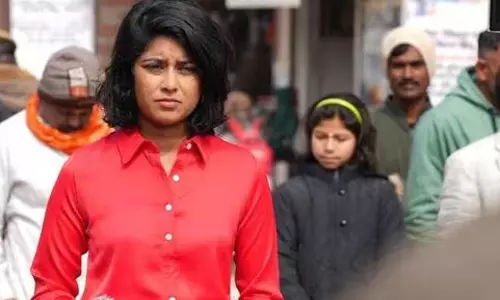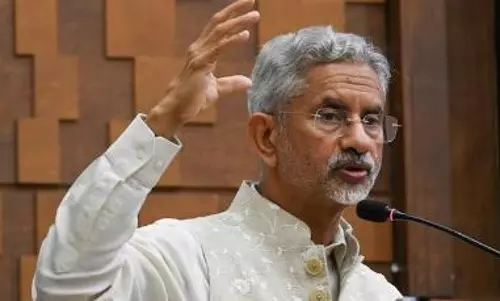
Democracy means strikes too
text_fieldsThe decision to double the compensation for land owners who allow Gas Authority of India Limited (GAIL) to lay the natural gas pipeline through their property and also to accept their fair demands was taken at a meeting chaired by Chief Minister Pinarayi Vijayan on Saturday.
Even though the demands of the Anti-GAIL action committee have not been met completely, the decisions of the government are laudable. By reviewing and improving the compensation scheme and incorporating all the victims in the scheme since it was instituted in 2012, it is the validity of the protests that has been recognized. The action committees in Mukkam and Eranhimavu can heave a sigh of relief; for the violence and the torture they faced having compelled the government as well as the company to have a rethink; for paving way for the central government to correct their stances. The Chief Minister abandoning the rigid stance initially adopted against the action committee and against the cause of the protest and his reverting to a path of consensus and discussions brings positive hope. If the unjustifiable actions of the police against the agitators are rescinded as well, it would surely help in reclaiming the lost reputation.
It is at the same time when the Kerala government is set to adopt a sensible approach towards the GAIL protest, that the Centre has announced its decision to reduce the Goods and Services Tax (GST) to 18 per cent. It was not due to the realization coming from the widespread protest across the nation against the implementation of demonetisation and unscientific execution of GST; instead the Prime Minister was being compelled to reduce the GST for winning Gujarat elections. The unresponsive approach towards the demands raised during the recently concluded mass dharna by a joint platform of trade unions proves that the basic attitude of the Prime Minister or the Centre has not changed a bit in their hostile approach towards popular protests. The approach of the central government towards the farmer agitations in Jantar Mantar and the tribal protests for land was also similarly disdainful. P Chidambaram’s remarks that the Gujarat elections could do ‘what the Parliament and common sense could not do’ explains the true nature of the governments, as also the relevance of strikes and protests as well.
It is when the authorities are constantly compelled into facing the people that the power of the people exists to be experienced. Just like the elections, protests too are democratic exercises that holds in check the government’s authoritarian tendencies. It is when the right to disagree with the policies and stances of the people in power exist that the essence of democracy is preserved. A social life with no protests and agitations would reflect autocracy and not democracy. Maintaining an approach of dialogue towards popular protests and rectifying policies shows a determination to safeguard the values of democracy and not the failure of the government or the people in power. Through the readiness to engage in discussions with the anti-GAIL action committee and to consider their demands, both the government and the people emerge winners. On the other hand, waiting till the elections to reverse an anti-people stance marks the helplessness of an authoritarian government and not the values of democracy.
The public perception is that whenever any development project is executed a few will incur losses and that has to be borne. The governments, and what more, even the courts that should stand by norms of justice, do at times go in line with this popular logic. This logic can be seen repeated on the issues of demonetisation, GST reforms and in development processes like GAIL. In a developed democratic order, there should not be any victims who incur losses due to development. On the contrary, the beneficiaries of development must be ready to give a compensation equal to or more than their loss, to those who pay a price for development; even if the projects are of private companies and run by governments for the common needs of the society. Displaying reluctance to safeguard a minority society who are forced to give their land for the development (if there is one) of the majority tantamounts to being anti-democratic. Therefore, any protest, however small it is, does carry the very breath of democracy.























